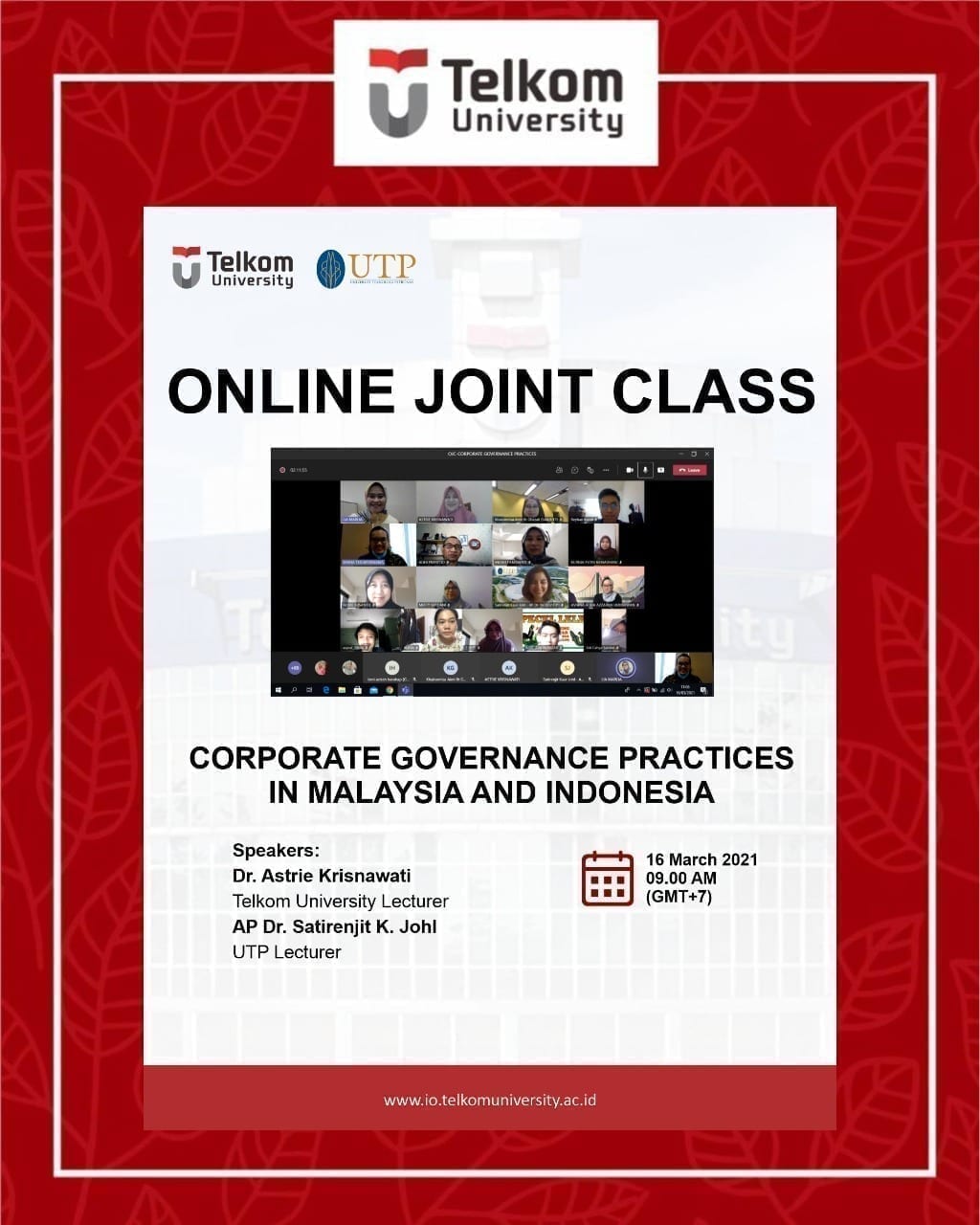
Corporate Governance Practices, the 7th Online Joint Class
Corporate Governance Practices, the 7th Online Joint Class. Another Online Joint Class between Telkom University and Universiti Technology PETRONAS, Malaysia was successfully held by on Tuesday, 16th March 2021 at 9 am (Indonesian Time) or 10 am (Malaysian Time). Inviting two guest speakers, Dr. Astrie Krisnawati, a lecturer at Telkom University and AP Dr. Satirenjit K. Johl, a lecturer at University Technology PETRONAS both shared a very interesting topic on “Corporate Governance Practices in Malaysia and Indonesia.” On this session, there were about more than 100 participants joining this class.
Dr. Satirenjit K. Johl shared Corporate Governance Practices in Malaysia. She explained that corporate governance is a relationship among stakeholders used to determine and control the strategic direction and performance of organization. The authority is based on a body of rules defining the rights and duties of shareholders, boards of directors, and managers. She also explained separation of ownership and managerial control they are:
- Shareholders purchase stock, which entitles them residual claimants (entitles to income) from the firms’ operations after paying expenses.
- Shareholders reduce risk by holding diversified portfolios by investing in several companies.
- Professional managers are contracted to provide decision making
Johl also mentioned some corporate governance practices cases in Malaysia. Corporate governance is vital in the effort to achieve goals.
Corporate Governance in Indonesia
Meanwhile, Dr. Astrie Krisnawati discussed about Corporate Governance in Indonesia. She explained that corporate governance is a set of rules governing the relationship between shareholders, managers, creditors, interested, employees and other interested parties, both internal and external, related with their rights and obligations. She also explained that principles of corporate governance in Indonesia (2015) refers to G20/OECD which are:
- Transparency: disclosure of actual and factual information
- Accountability: implementation of the mandate for every respective function
- Independency: being free from all conflict of interest and from any influences or pressures, and no determination or intervention from any parties.
- Fairness: guarantee of equal rights to all stakeholders, the enforcement of legal and regulatory system to all parties.
Good corporate governance fosters a culture of integrity and leads to positive performance and sustainable business. Good corporate governance also strongly signals to the market that the organization is well managed and that management’s interests align with other stakeholders. Astrie also explained about corporate governance cases in Indonesia.
Corporate Governance Practices in Malaysia and Indonesia is the 7th online joint class organized by Telkom University and UTP. This online joint class between Telkom University and UTP will continue with more interesting topics.(IO)***

